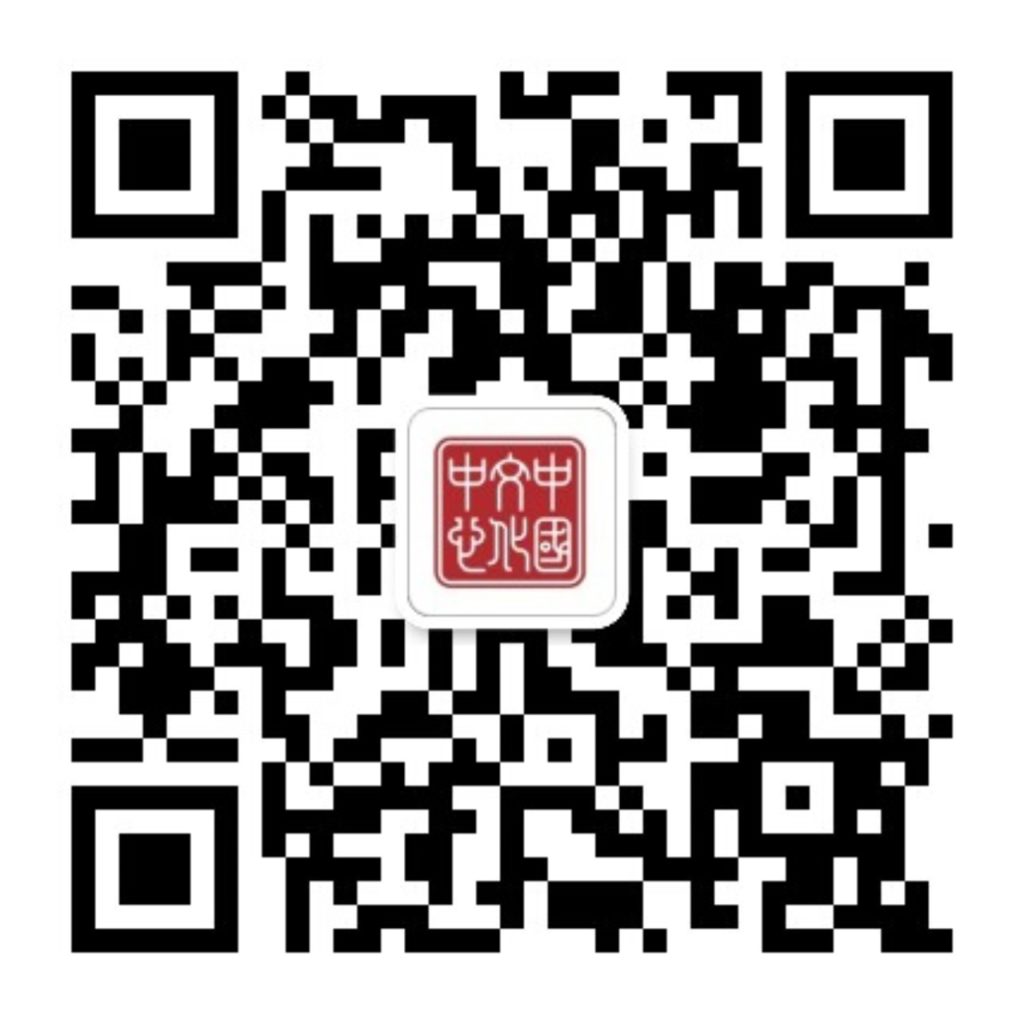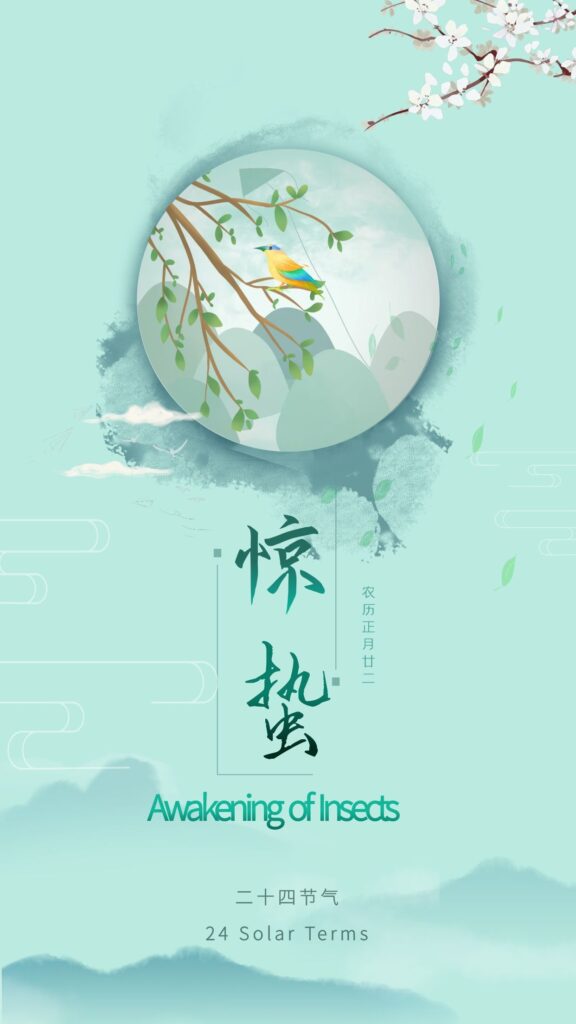
Starting from March 5, or the 22nd of the first Chinese lunar month, the third solar term of spring – Jingzhe (Awakening of Insects) heralds spring thunder along the Yangtze River and spring ploughing in most areas of China. Animals are awakened from winter sleep and the earth begins to come back to life.
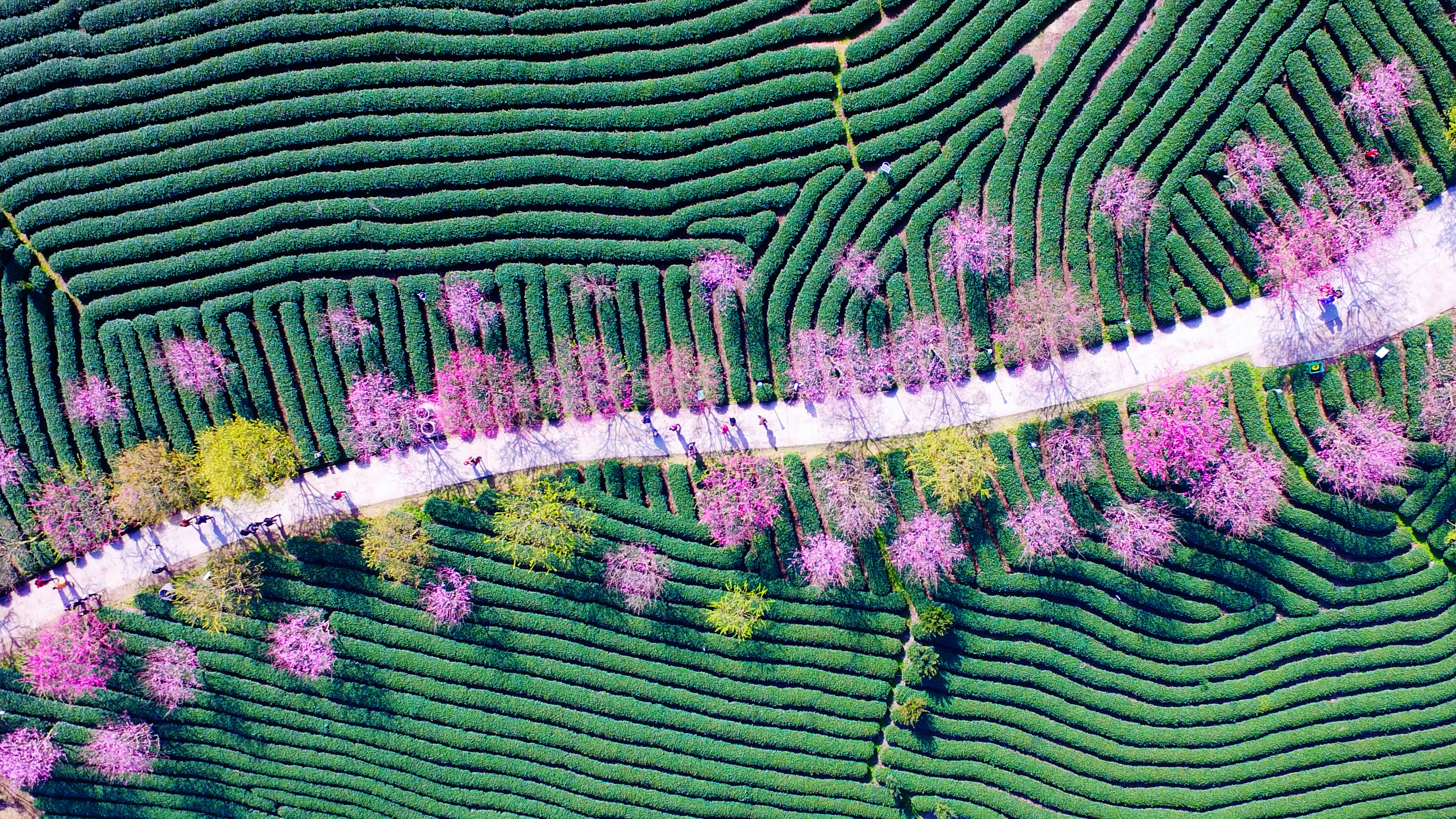
 -709x1024.jpg)
Yongfu Cherry Blossom Garden, Longyan, Fujian province
Ancient Chinese believed that thunder brought the Awakening of Insects and that the God of Thunder is a man with beak and wings. He beats the drums circling around him to create thunder. When he does so on the first day of this solar term in heaven, people on earth shall stretch drumheads accordingly.
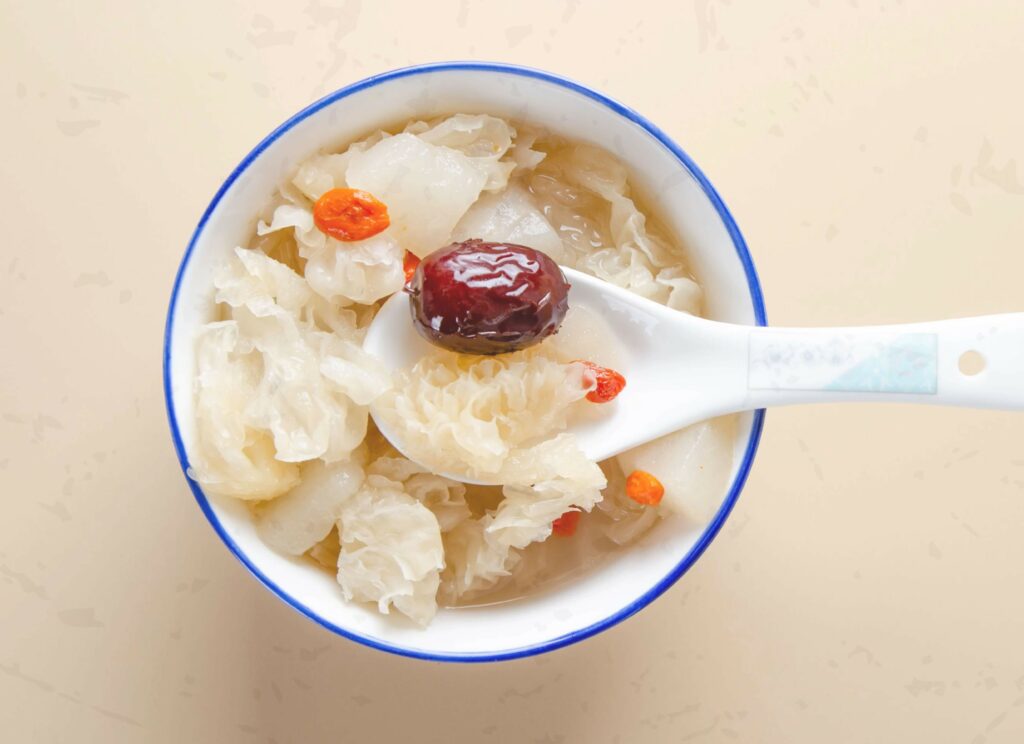
Stewed pear with white fungus
Eating pears around Jingzhe is a widely-practiced custom in China. It is said that as the words “pear” and “separation” are homophones in Chinese (pronounced as “li”), eating pear signifies that we shall remember our ancestors and endeavor to build a career away from home; it also reflects the wish to keep pests away from crops and have a good harvest. In terms of health preservation, pear is cold-natured and is good for moistening the lungs and clearing heat during this period of dry season.
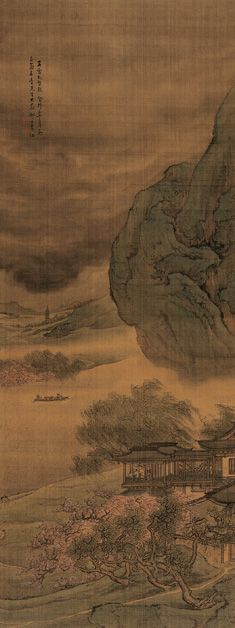
Spring Thunder Awakens The Dragon
Artist:Yuan Jiang
Year:1730
Dimension:134 × 50.5 cm
Technique:Ink and color on silk
In the collection of National Art Museum of China
Spring thunder awakens all insects among which some may cause damage to agricultural activitie and daily life. Therefore, people in some parts of southern China preserve the custom of eating stir-fried soybeans and grains resembling insects that symbolizes the elimination of pests. Farmers in Ningbo, Zhejiang province hold “insect sweeping” ceremonies in the fields, expressing their wishes to have all pests wiped out.
Video provided by China Xinhua News Network Corporation
For the Hakka people, Jingzhe solar term is the time to return home and pay respect to their ancestors to wish for a peaceful and prosperous year.
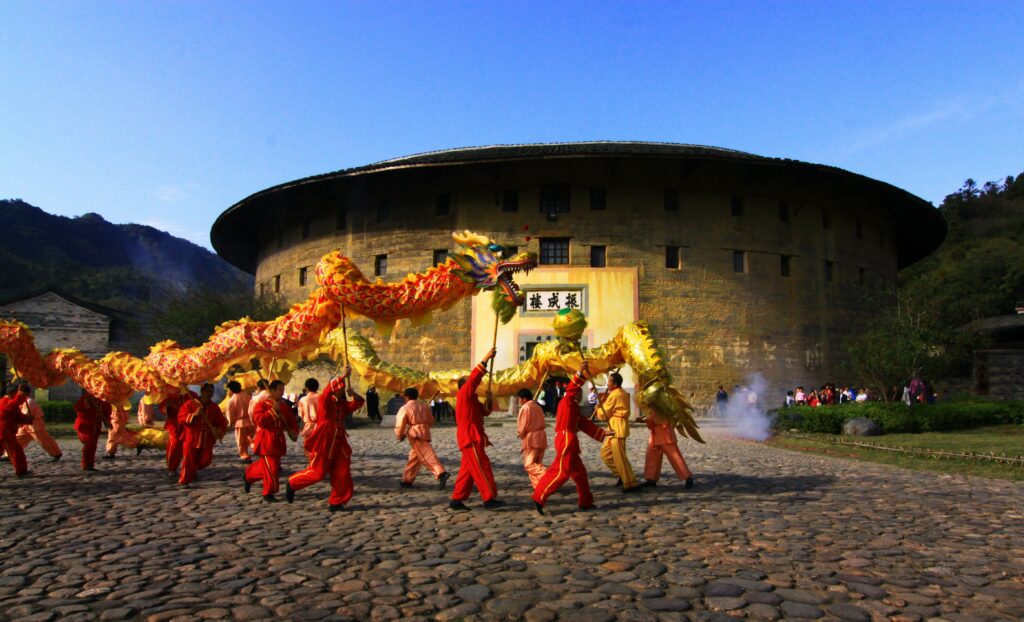
Zhencheng Building, Longyan
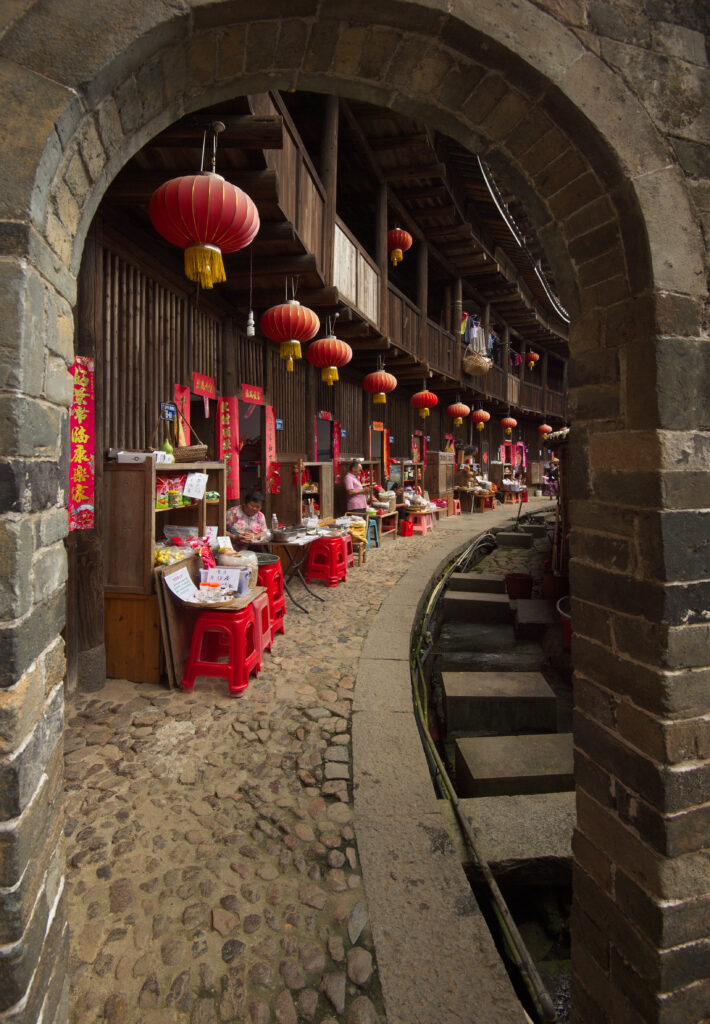
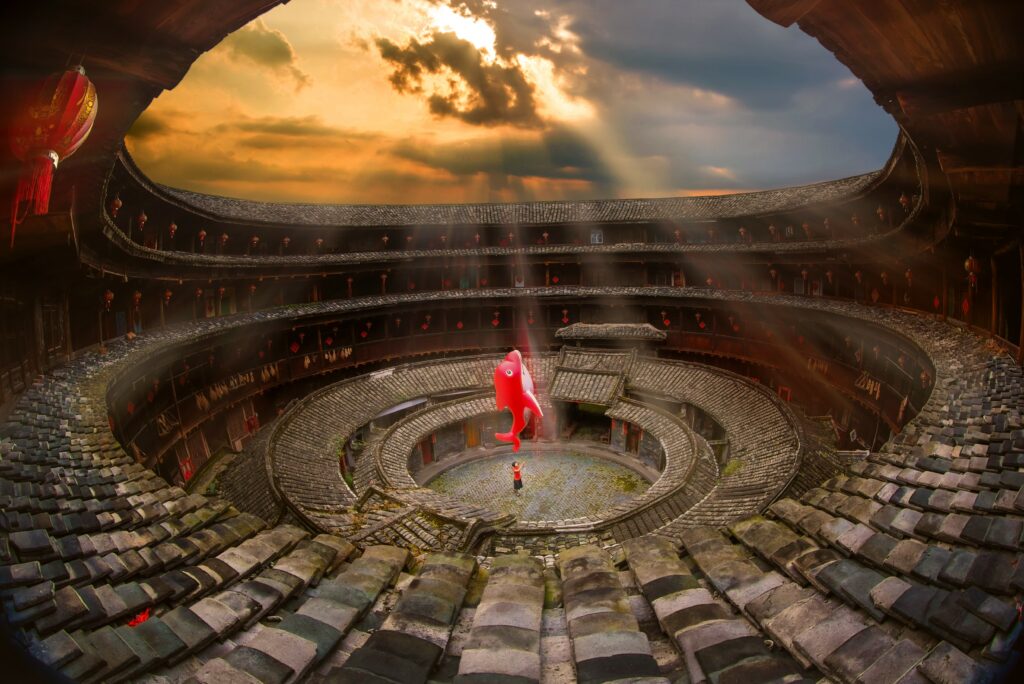
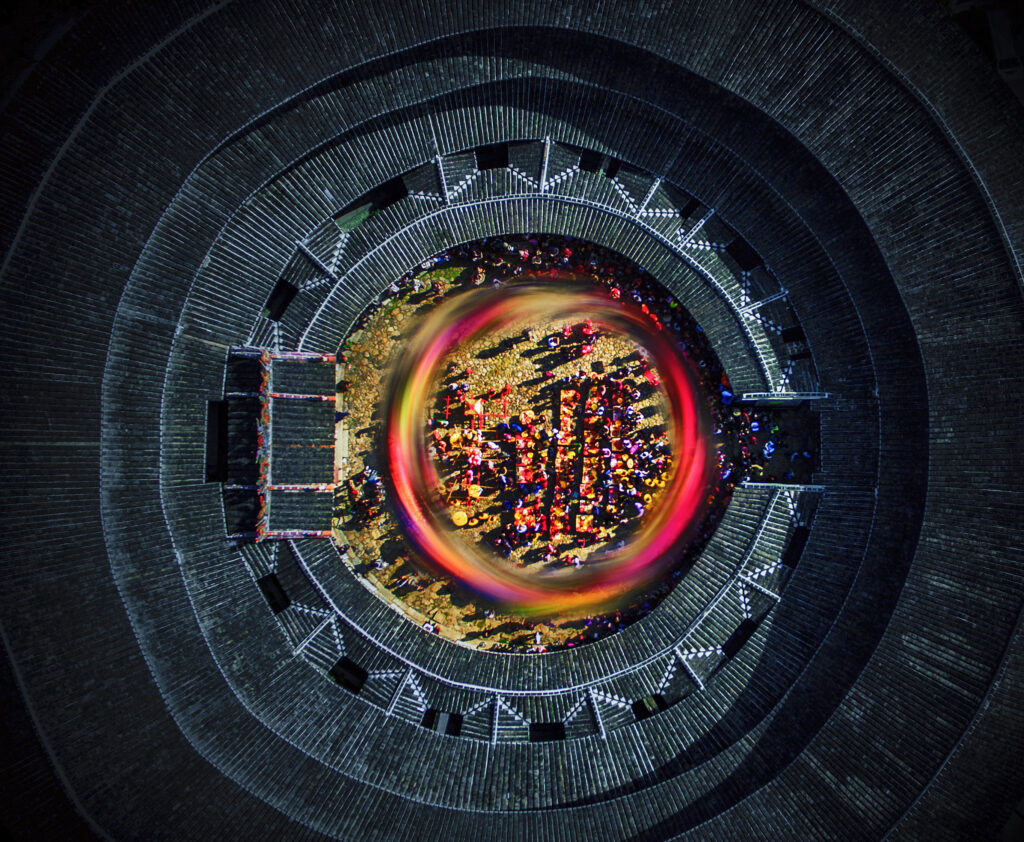
Yongding Tulou (communal residence for the Hakka), Longyan
Sources:
http://www.ihchina.cn/
福建省文化和旅游厅
Facebook: China Cultural Center in Stockholm
https://www.facebook.com/China-Cultural-Center-in-Stockholm-110983273921638
Instagram: chinaculturalcenterinstockholm
https://www.instagram.com/chinaculturalcenterinstockholm/
Tik Tok: cccinstockholm
@cccinstockholm
Wechat: 斯德哥尔摩中国文化中心 or scan the QR code below
